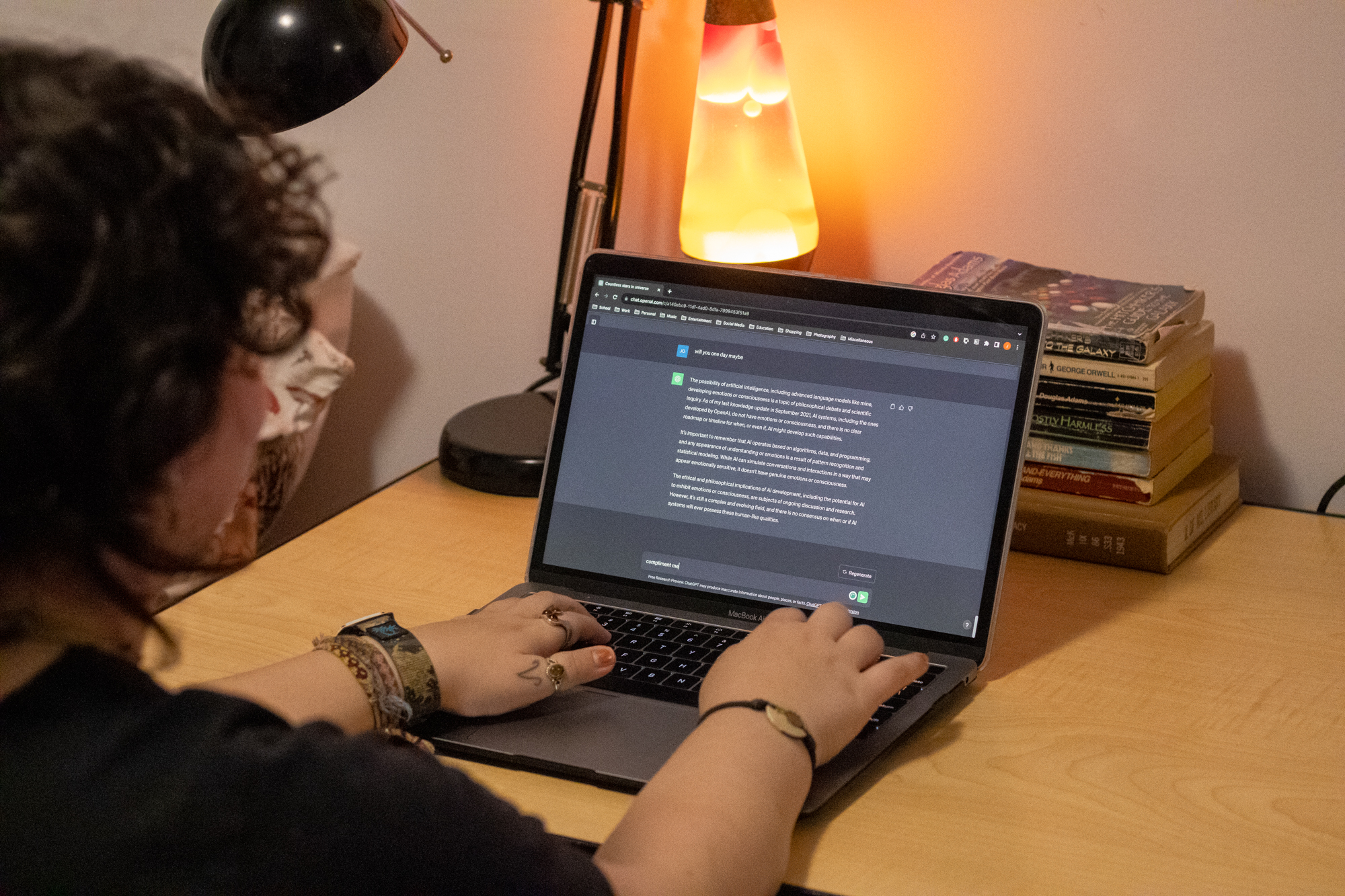Views expressed in opinion columns are the author’s own.
As college students across the globe prepare to enter the workforce, the landscape of employment is shifting beneath their feet. At the forefront of this seismic change is artificial intelligence, advancing at an unprecedented rate with the capabilities to change life as we know it. Elon Musk made a bold prediction: AI will eventually take over all human jobs.
This claim, while provocative, demands careful consideration, particularly from those on the brink of starting their careers and those making strides to reach their desired career goals. What does this mean for the future job prospects of today’s students?
Musk’s assertion that AI will usurp all human jobs might seem exaggerated to some, but it underscores a crucial point: the nature of work is changing, and the University of Maryland — and its new AI institute — must prepare its students accordingly.
While AI undoubtedly presents challenges, it also offers unique opportunities for those willing to adapt. With the help of AI, research capabilities will be enhanced by the processing of vast amounts of data in a fraction of the time previously needed, aiding research across various fields.
In healthcare, AI may be a valuable resource for diagnostics, enabling medical professionals to concentrate on patient care and complex decision-making. It is easy to perceive the potential limitations AI may impose upon careers, but as a forward-thinking society, we must be aware of the expansions to quality of life it offers as well.
Fields that are currently thriving might see a significant transformation in the coming decades. For instance, repetitive and routine tasks in sectors such as manufacturing, customer service and many others could be fully automated, with many already using AI to replace salaried workers. However, this doesn’t mean the end of human employment. Instead, it marks a shift in the types of skills that will be in demand.
Workers in the healthcare field, for instance, who extend an olive branch to AI and flourish alongside it, will reap the benefits of patient-centric practice philosophies. Students who turn to AI for help with understanding complex subjects will benefit from on-demand tutoring, potentially leading to fewer stressors and higher grades. Embracing lifelong learning and staying updated with the latest technological advancements will be key.
This university should provide courses and experiences that challenge students to think critically and solve problems using creativity. These are skills that AI, despite its capabilities, cannot replicate.
The new AI interdisciplinary institute launched in April seeks to offer educational pathways for those interested in delving deeper into AI, as well as general education courses that will be open to all students, regardless of major.
While AI can process data and perform tasks with near superhuman efficiency, it lacks a nuanced understanding of human emotions and social dynamics. Jobs that require empathy, negotiation and interpersonal skills will likely remain in the domain of humans. Therefore, for students in fields such as psychology, social work and education, this university’s curricula must focus on honing these uniquely human attributes.
This university must integrate AI and technology-related courses across various disciplines, ensuring that students from all fields, not just computer science, gain a foundational understanding of these technologies. This can include offering interdisciplinary programs that combine AI with other subjects, such as seminars about AI in healthcare, finance or environmental science.
Practical experience is equally crucial. Thus, this university should expand opportunities for internships, co-op programs and collaborative projects with industry partners, providing students with real-world experience and a clearer understanding of how AI is being implemented in their chosen fields. Furthermore, this university should invest in career services that are attuned to the emerging job landscape, offering guidance on new career paths, resume building and job search strategies tailored to the digital age, something that is often glossed over by current career preparatory services offered at this university.
Elon Musk’s prediction about AI taking over all human jobs may seem daunting, but it doesn’t have to be a cause for despair. Although it may prove to be a bit of a headache for those who seek to future-proof their life plans, it is a call to action for our universities.
The future job market will reward those who are adaptable, eager to learn and possess strong interpersonal skills. By prioritizing and embracing interdisciplinary learning and engaging with the ethical dimensions of AI, universities can prepare students to navigate the changing landscape with confidence and human creativity that AI can never mimic.
Nicky Rostamiani is a senior economics and government and politics major. She can be reached at nrostamiani@terpmail.umd.edu.



